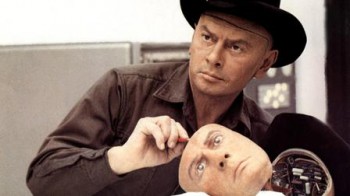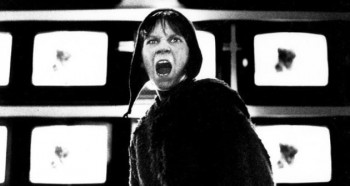Weird of Oz on the Art of Rating 3 (of 3)
“Excellent, Dude! This movie was totally triumphant!… Not since the McKenzie Brothers or the Frog Brothers has a group come along as wild as these Wyld Stallyns…”
So I wrote 24 years ago in my review of Bill and Ted’s Excellent Adventure. Dude, I totally didn’t talk like that — for those who never saw the movie, I was riffing on the way the characters speak.
Looking back over the review now, I notice that I list the then-unknown actor who played Ted as “Keavy Reeves.” We didn’t have the Internet Movie Database — or the Internet — back then; my guess is I misread the notes I jotted down in the theater.
I also notice it was a decent review that gave readers of the high school newspaper a good grasp of what the film was all about, albeit a bit adverb-heavy: “As one can probably tell this movie had great potential to be utterly stupid. It is on that fine line between being fantastically dumb and riotously hilarious, but it succeeds in being the latter. . . . It is an incredibly funny movie and I declare it excellent.”
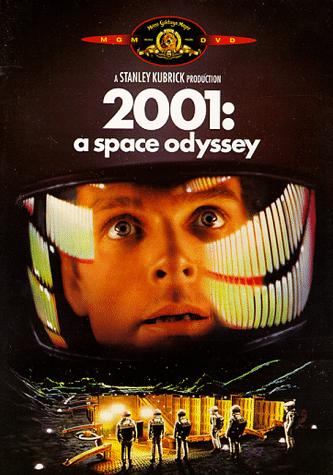 So the review holds up okay. Question is, does the movie? I confess I haven’t watched it in years, but I have seen it several times, and my memories of it are fond ones (it was filmed in the places where I hung out in high school, so it is a trip down memory lane in more ways than one).
So the review holds up okay. Question is, does the movie? I confess I haven’t watched it in years, but I have seen it several times, and my memories of it are fond ones (it was filmed in the places where I hung out in high school, so it is a trip down memory lane in more ways than one).
When I declared Bill and Ted’s to be “excellent,” was I (aside from playing on the characters’ vernacular) putting it in the same category as 2001: A Space Odyssey? Bill and Ted’s is nominally a science-fiction (time travel) film. Of course, it is primarily a comedy, so was I elevating it to the ranks of Some Like It Hot, Duck Soup, and Dr. Strangelove? (If you haven’t guessed, the answer is Hell no.) This leaves one big question, which brings us to the final topic I wish to consider in this series on the art of rating: When we rate a film (or a book or a television show etc.), what are we rating it against?
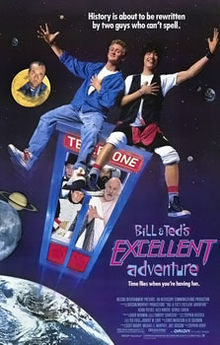
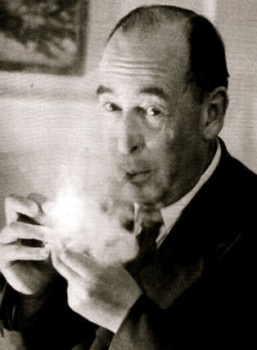

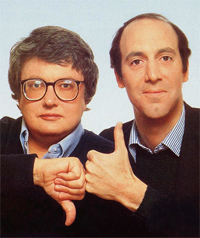
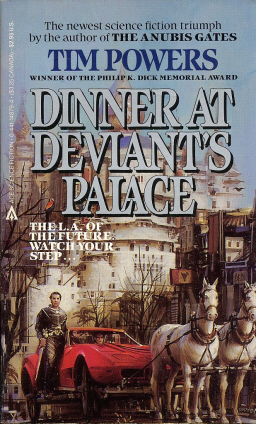

 One of the strangest and most distinctive elements of a super-hero is a secret identity. It’s so distinctive we don’t even think about how strange it is. Or, more precisely, how strange the heroic identity is. There’ve been disguises and alter-egos throughout fiction, whether Odysseus showing up at his home incognito before killing his wife’s suitors, or the heroines of Shakespearean comedy dressing up as men and taking male names, or Sherlock Holmes ferreting out clues while masquerading as a humble old book-seller or opium addict. But the super-hero identity, in its classic form, is less a person than an idea: a being known by a code-name, who does not pretend to be a specific person, but instead wears a mask or cloak, and who exists only for one reason — usually to defend against some injustice, to right wrongs, or generally to fight crime. The super-hero identity is not a person or a personality; it’s the idea of a person, the dream of an identity. Much has been written about the symbolic presentation of masculinity the dual identity implies, a weak or nerdy exterior hiding a powerful secret persona. It’s interesting, then, that the idea seems to have been created by a woman.
One of the strangest and most distinctive elements of a super-hero is a secret identity. It’s so distinctive we don’t even think about how strange it is. Or, more precisely, how strange the heroic identity is. There’ve been disguises and alter-egos throughout fiction, whether Odysseus showing up at his home incognito before killing his wife’s suitors, or the heroines of Shakespearean comedy dressing up as men and taking male names, or Sherlock Holmes ferreting out clues while masquerading as a humble old book-seller or opium addict. But the super-hero identity, in its classic form, is less a person than an idea: a being known by a code-name, who does not pretend to be a specific person, but instead wears a mask or cloak, and who exists only for one reason — usually to defend against some injustice, to right wrongs, or generally to fight crime. The super-hero identity is not a person or a personality; it’s the idea of a person, the dream of an identity. Much has been written about the symbolic presentation of masculinity the dual identity implies, a weak or nerdy exterior hiding a powerful secret persona. It’s interesting, then, that the idea seems to have been created by a woman.